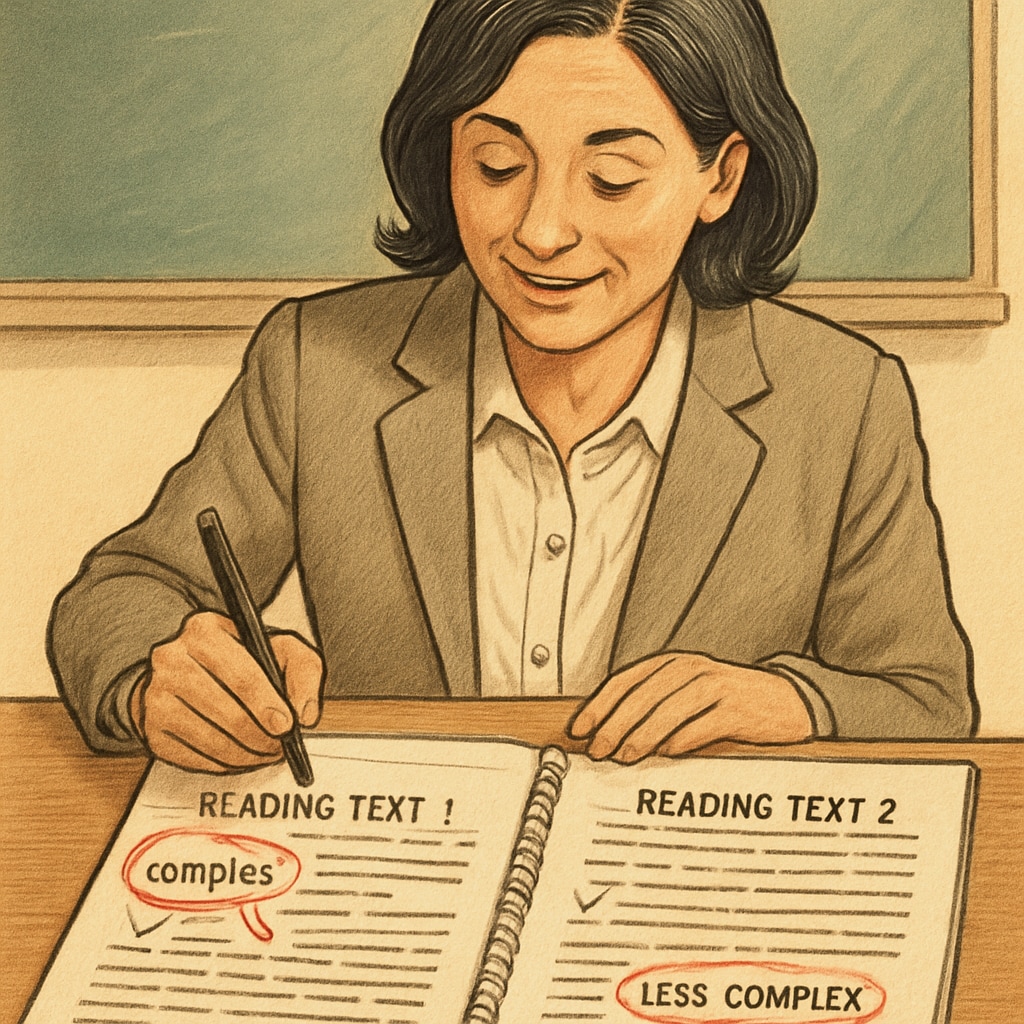In the realm of education, understanding reading text complexity is pivotal for developing effective teaching strategies and improving student literacy. A groundbreaking study is now inviting primary and middle school teachers to leverage their professional expertise in evaluating the complexity of reading materials. This initiative, requiring just 30 minutes of participation, is designed to enhance reading comprehension research and provide a scientific basis for selecting future teaching materials.
Why Reading Text Complexity Matters
Reading text complexity refers to the degree of challenge a text poses to readers based on its vocabulary, syntax, themes, and structure. Assessing this complexity is crucial for aligning reading materials with students’ developmental levels and ensuring they are neither too simplistic nor overly advanced. Teachers, with their practical experience and nuanced understanding of student needs, play a key role in refining these assessments.

Teacher Collaboration: The Heart of the Study
This innovative research project recognizes teachers as invaluable contributors to the evaluation process. Unlike automated tools or algorithms, educators bring a human perspective, enriched by their daily interactions with students. By participating, teachers can offer insights into how specific texts resonate with different age groups and learning abilities.
The study’s design is simple yet impactful. Teachers are invited to analyze selected texts, provide feedback on their perceived complexity, and share their observations on readability and suitability for various grade levels. This process not only aids researchers but also empowers participants by validating their expertise in the classroom.

Benefits Beyond the Classroom
Engaging in this study offers multiple advantages:
- Advancing Educational Research: Teachers’ contributions will help refine existing frameworks for evaluating text complexity, making them more applicable to real-world classroom settings.
- Improved Curriculum Design: Insights gained from the study could inform the selection of reading materials that better support student learning outcomes.
- Professional Growth: Participating teachers will gain deeper awareness of text complexity factors, enhancing their ability to choose suitable materials for their students.
As a result, the study promises to bridge the gap between theoretical research and practical application, benefiting both educators and learners alike.
How to Participate
Participation is straightforward and accessible. Teachers interested in contributing to the study only need to dedicate 30 minutes to evaluating the provided reading texts. The process is designed to be user-friendly, with clear instructions and resources to guide participants through each step.
For educators eager to make a difference, this opportunity not only allows them to shape the future of reading education but also underscores their critical role in fostering literacy. Interested individuals can learn more about the study and its objectives by visiting Educational Research on Wikipedia or Education on Britannica.
Conclusion: Teachers are the backbone of education, and their expertise is essential for evaluating reading text complexity. By participating in this innovative study, educators can contribute to meaningful advancements in literacy research and curriculum development, ultimately improving student learning experiences.


